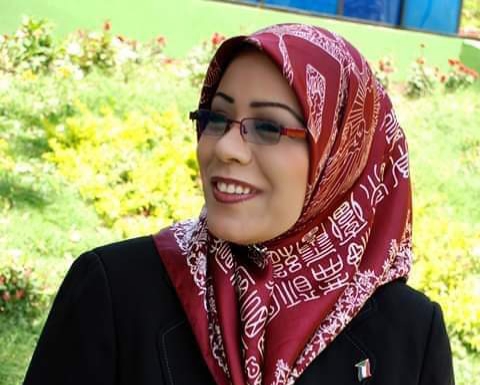Starving Civilians: A War Crime

By Dr. Enas Mohammed Ahmed
Since ancient times, there has been a religious or philosophical desire to make war more humane. Ancient Chinese philosophers and sages (from the 4th and 5th centuries BCE) proposed ideas emphasizing the need to respect certain rules of warfare, particularly protecting those not involved in combat. These thinkers advocated for wars with noble purposes and ethical boundaries, driven by the desire to safeguard human life. From that time onward, efforts have been made globally to minimize the suffering of civilians and ensure their survival during wars. Despite the harshness of ancient societies, strict customs were often observed during conflicts.
As humanity progressed, with the development of ideas, sciences, and the emergence of divine religions, the right to life became a universally recognized human right. This right is upheld by all religious teachings and guaranteed by civil laws. It is also the first right in the global human rights framework and remains an obligation for all states, in both peace and war, especially concerning civilians.
To ensure the right to life, essential elements must be provided, foremost among them being access to food. This entails three fundamental aspects: availability, accessibility for affected civilian populations, and sufficiency to meet their basic needs.
Starvation tactics in war are employed through various means, such as destroying food storage facilities, burning or spoiling crops, targeting markets, mills, and bakeries, controlling water dams or irrigation networks, or imposing blockades to prevent the delivery of food supplies or humanitarian aid to civilians.
Using starvation as a war tactic dates back to ancient times, with history documenting numerous sieges and instances of civilian starvation, leading to the deaths of large numbers of people. After World War II, the international community emphasized the need to evacuate civilians from conflict zones or, at the very least, allow them safe passage to escape hostilities.
In modern times, intentionally starving civilians is prohibited under international law. Humanitarian law ensures the protection of all civilians during conflicts, even if they are not combatants. However, civilians often lose their lives as a result of war, prompting the prohibition of several war crimes, including deliberate starvation. Denying civilians access to food and humanitarian aid constitutes a clear intent to starve them, which is recognized as a war crime.
International humanitarian law criminalizes the starvation of civilians. This legal principle is rooted in the doctrine of distinction, as outlined in Article 14 of the Additional Protocols of 1977, and Article 24(2), which affirms the protection of civilians and prohibits their starvation.
Furthermore, Article 2 of the Genocide Convention stipulates that deliberately subjecting a group of people to conditions intended to destroy them physically, in whole or in part, constitutes genocide. Thus, the deliberate starvation of civilians can be classified as either genocide or a war crime. In both cases, it is an international crime punishable under humanitarian law, and perpetrators, participants, or inciters of such acts are considered war criminals.
On December 6, 2019, the Rome Statute was amended to include the deliberate starvation of civilians as a war crime in non-international armed conflicts. Similarly, Rule 156 of customary international humanitarian law considers the starvation of civilians and depriving them of food essential for survival a war crime.
The United Nations Security Council adopted a resolution on May 24, 2018, condemning the use of starvation as a war tactic, including blocking food supplies and humanitarian aid essential for survival. The resolution called on all member states to criminalize starvation and classify it as a war crime.
In all cases, international humanitarian law obligates the protection of civilians who leave besieged areas or are voluntarily evacuated to ensure their safety.
In light of the ongoing suffering caused by war in Sudan, United Nations experts have accused the Rapid Support Forces (RSF) of employing starvation tactics against civilians, exacerbating their suffering and causing the deaths of children and the elderly.
The RSF has also been accused of starving detainees in its prisons. Numerous accounts, such as those reported by The Times, describe the release of prisoners following victories by the Sudanese Armed Forces in Wad Madani. Thousands of detainees, held under harsh conditions, were reportedly subjected to starvation, severe beatings, and torture, resulting in the death of many. Survivors, who were released in a state of severe malnutrition, required urgent medical care to recover. They recounted harrowing stories of deliberate starvation, receiving only a small cup of lentils and water daily.
In another example, in March 2024, the RSF intercepted and seized UNICEF humanitarian aid trucks en route to El Fasher to alleviate the food and health crises in displaced persons camps. These camps, especially those housing children, were already facing severe malnutrition. The RSF blocked the humanitarian convoy, mobilized mercenaries along the Mellit-El Fasher road, and looted the aid. UNICEF condemned this act as a violation of international humanitarian law, which the RSF itself publicized through media outlets.
In January 2025, Sudan’s Humanitarian Aid Commission, in coordination with the Chinese government, received 1,200 tons of rice intended for war-affected states. However, the commission accused the RSF of deliberately preventing the delivery of aid to those in need, using starvation as a weapon of war against civilians.
These are but a few examples of the grim and painful realities of war crimes committed by the RSF, which hypocritically claims to fight for “democracy” amid the bloodshed of innocents and the lives of children.
Source: “Al-Muhagig”



